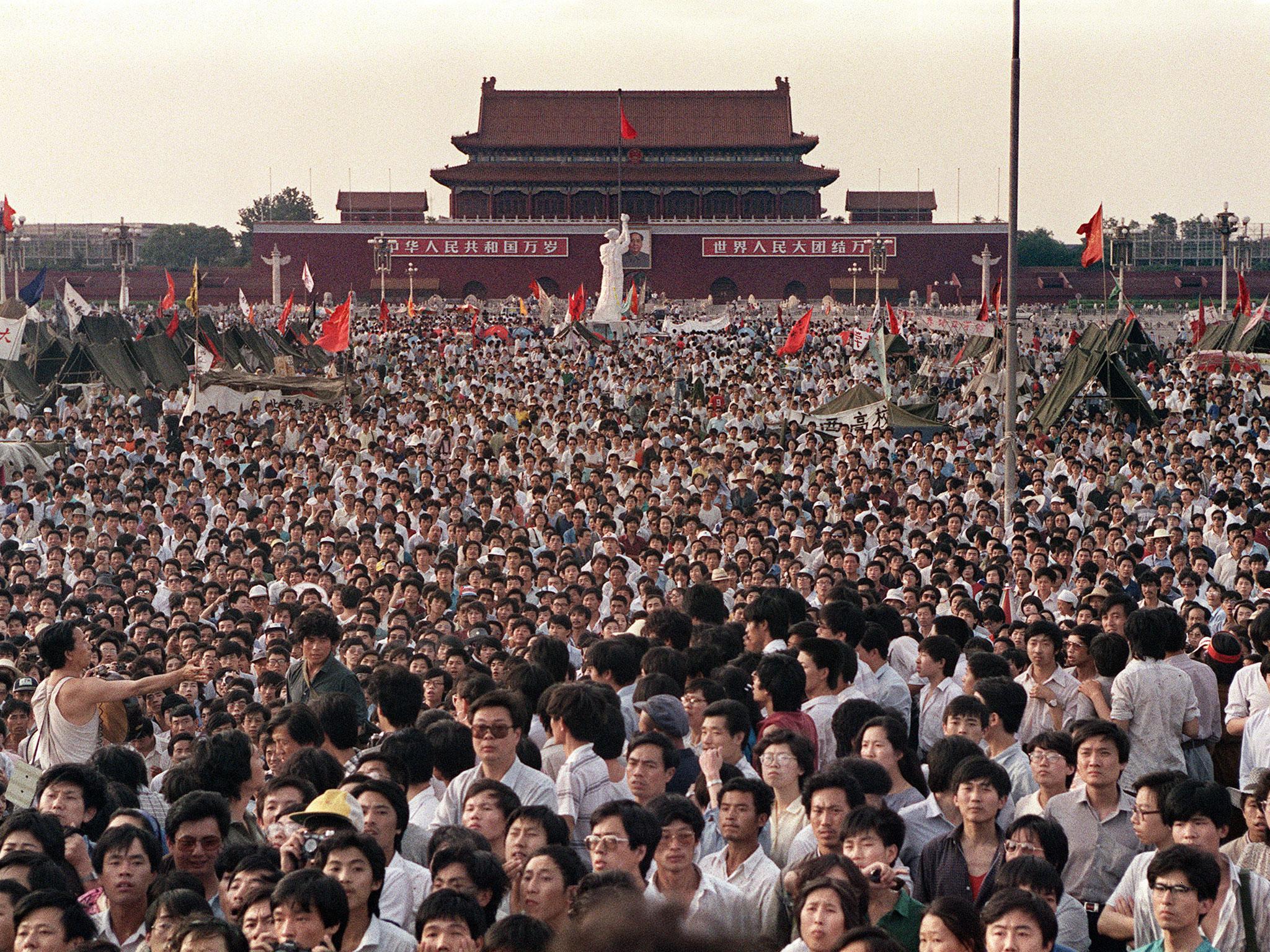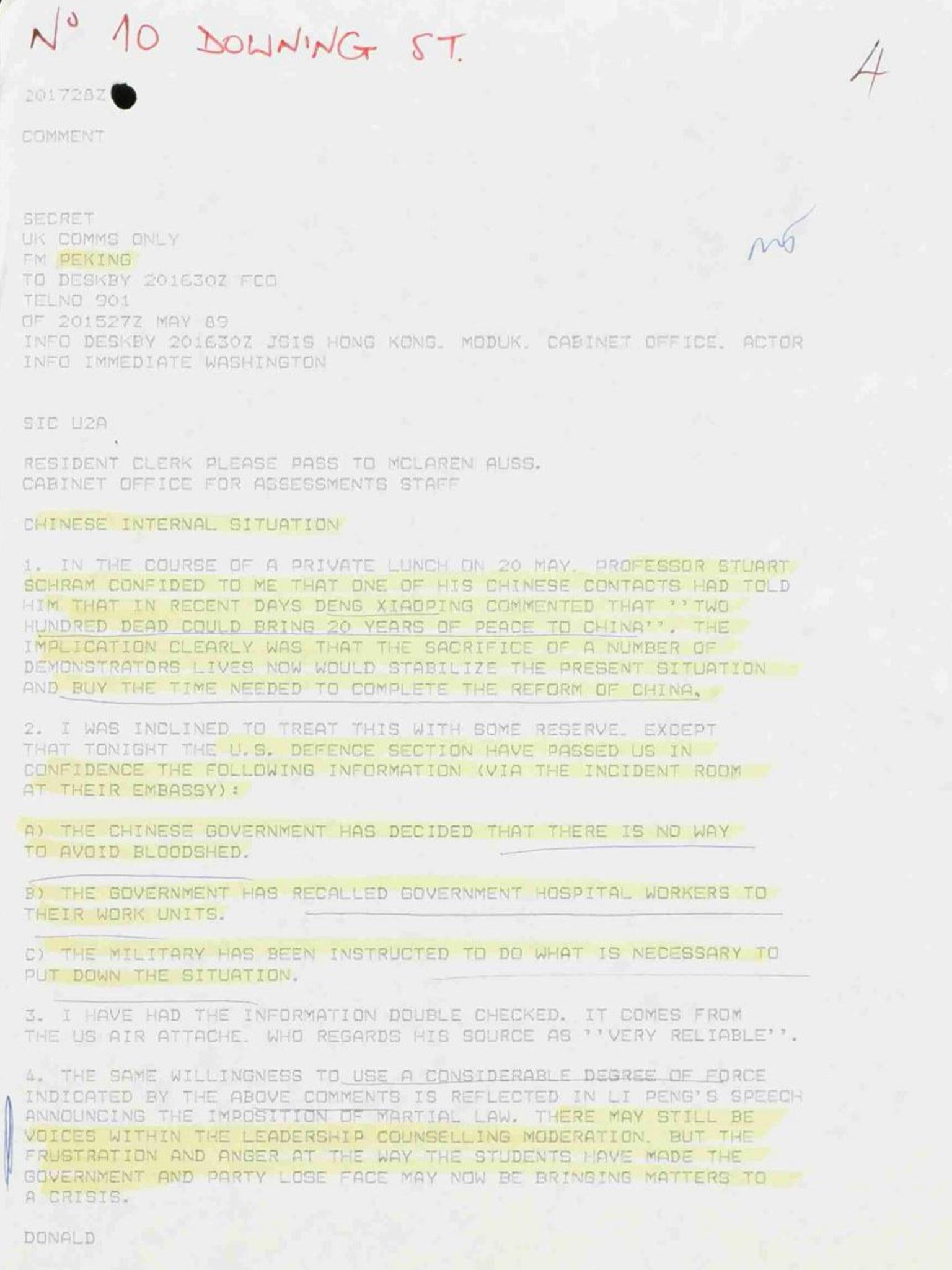British Government was warned about Tiananmen Square 'bloodshed' two weeks before Beijing massacre
'The implication clearly was that the sacrifice of a number of demonstrators lives now would stabilise the present situation'

Your support helps us to tell the story
From reproductive rights to climate change to Big Tech, The Independent is on the ground when the story is developing. Whether it's investigating the financials of Elon Musk's pro-Trump PAC or producing our latest documentary, 'The A Word', which shines a light on the American women fighting for reproductive rights, we know how important it is to parse out the facts from the messaging.
At such a critical moment in US history, we need reporters on the ground. Your donation allows us to keep sending journalists to speak to both sides of the story.
The Independent is trusted by Americans across the entire political spectrum. And unlike many other quality news outlets, we choose not to lock Americans out of our reporting and analysis with paywalls. We believe quality journalism should be available to everyone, paid for by those who can afford it.
Your support makes all the difference.The British Government was warned the Chinese People's Liberation Army were preparing to kill hundreds of student protesters in Tiananmen Square two weeks before the massacre took place, recently declassified documents suggest.
A secret diplomatic cable, recently declassified by the National Archives, showed Britain's envoy to Beijing had warned officials in London of the potential "bloodshed".
"The Chinese government has decided that there is no way to avoid bloodshed," Sir Alan Ewen Donald wrote on 20 May, 1989.

Communist leader Deng Xiaoping declared martial law on the same day and mobilised up to 300,000 troops to Beijing.
Sir Donald also included information from his lunch with American sinologist Stuart Schram, who said his Chinese contacts had reported Mr Deng saying: "Two hundred dead would bring 20 years of peace to China."
The diplomat added: "The implication clearly was that the sacrifice of a number of demonstrators lives now would stabilise the present situation and buy the time needed to complete the reform of China."
He also cited US embassy intelligence suggesting the Chinese government had recalled all hospital workers and instructed the military to "do what is necessary to put down the situation".
The student-led protests in Tiananmen Square were brutally crushed by the Chinese army, who shot several hundred unarmed protesters on 4 June, 1989.
Official figures put the number of civilians killed between 200 and 300, but some estimates say thousands may have died.
At the time, Prime Minister Margaret Thatcher said she was "shocked and appalled by the shootings".
A Foreign Office spokeswoman declined to comment.
Join our commenting forum
Join thought-provoking conversations, follow other Independent readers and see their replies
Comments